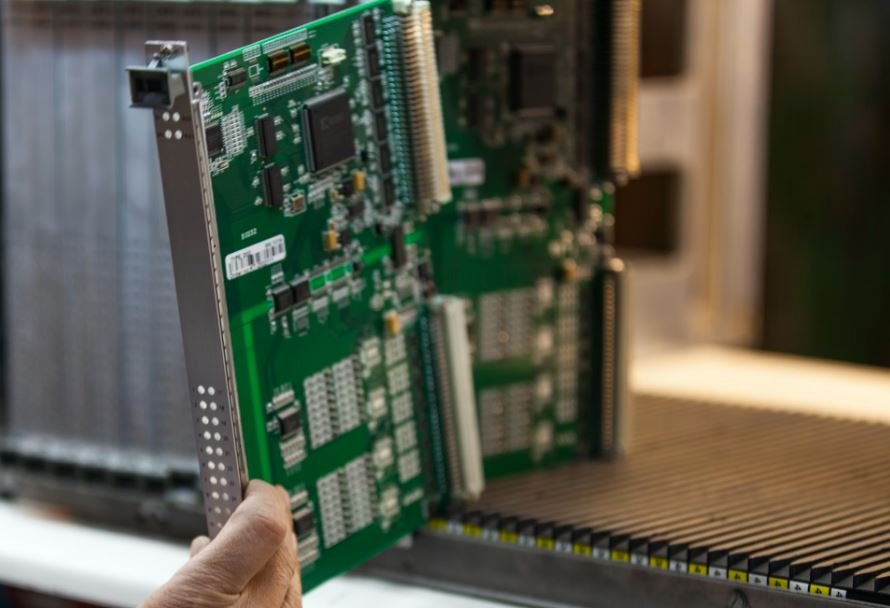Can I Store Tomatoes in the Fridge?
Tomatoes are a versatile and delicious fruit that can be used in a variety of dishes. However, when it comes to storing tomatoes, there seems to be some confusion. One common question that arises is whether tomatoes should be stored in the fridge or not. In this article, we will explore the best ways to store tomatoes and determine if refrigeration is suitable for this vibrant produce.
Key Takeaways:
- Tomatoes should ideally be kept at room temperature to maintain their flavor and texture.
- Refrigeration can negatively impact the taste and texture of tomatoes.
- If you must refrigerate tomatoes, it’s best to use them within a few days to minimize any quality loss.
The Perils of Refrigeration
**While it may seem convenient to store tomatoes in the fridge**, it can actually have a detrimental effect on their taste and texture. Tomatoes are sensitive fruits and chilling them causes a chemical reaction that alters their composition. This can result in a loss of flavor and a mealy texture. *Therefore, it is generally recommended to avoid refrigerating tomatoes whenever possible.*
How to Best Store Tomatoes
**To ensure optimal flavor and texture**, follow these guidelines for storing tomatoes:
- **Room temperature:** Tomatoes should ideally be stored at room temperature, between 60-70°F (15-21°C).
- **Away from sunlight:** Place tomatoes in a cool, dark spot away from direct sunlight, such as a pantry or countertop.
- **Stem-side up:** Store tomatoes with their stems facing up to help prevent moisture loss and prolong freshness.
- **Separate ripe and unripe tomatoes:** Ripe tomatoes emit ethylene gas, which can accelerate the ripening process of unripe tomatoes. It is best to store them separately.
- **Use a basket or open container:** If desired, you can store tomatoes in a ventilated basket or open container to help improve air circulation.
The Shelf Life of Tomatoes
Tomatoes vary in their shelf life depending on their ripeness and storage conditions. Here is a general guideline for how long tomatoes can last:
| Ripeness | Storage Method | Shelf Life |
|---|---|---|
| Ripe | Room temperature | 2-3 days |
| Unripe | Room temperature | 1 week |
| Ripe | Refrigerator | 2-3 days |
| Unripe | Refrigerator | 1 week |
When Refrigeration Becomes Necessary
Despite the preference for room temperature storage, there are circumstances where refrigeration may become necessary. If you have **fully ripe** tomatoes that need to be kept for a few more days without spoiling, it is acceptable to refrigerate them. However, *it is crucial to remember that the quality and flavor may be affected.*
Reviving Refrigerated Tomatoes
If you have stored **refrigerated tomatoes** and want to enhance their flavor and texture, there are a few steps you can take:
- **Allow them to reach room temperature:** Take the tomatoes out of the fridge and let them sit at room temperature for at least 30 minutes before consuming.
- **Elevate their flavor with seasoning:** Sprinkle some salt or drizzle olive oil on the tomatoes to add a burst of flavor.
- **Incorporate into cooked dishes:** Refrigerated tomatoes can be used in cooked dishes such as sauces, soups, and stews, where the texture changes are less noticeable.
Interesting Tomato Facts
| Fact # | Tomato Fact |
|---|---|
| 1 | **Tomatoes are technically fruits** because they develop from the ovary of a flowering plant and contain seeds. |
| 2 | **There are thousands of tomato varieties**, ranging in size, color, shape, and taste. |
| 3 | *Tomatoes are an excellent source of vitamins A and C, as well as potassium and antioxidants, making them a nutritious addition to your diet.* |
Tomatoes are a staple ingredient in many cuisines due to their rich taste and versatility. By understanding the **best storage methods** and the effects of refrigeration, you can ensure your tomatoes stay fresh and delicious.

Common Misconceptions
1. Tomatoes Should Always be Stored in the Fridge
One of the most common misconceptions about storing tomatoes is that they should always be kept in the fridge. Many people believe that refrigeration can help prolong their shelf life and keep them fresh. However, this is not always the case.
- Storing tomatoes in the fridge can affect their flavor and texture.
- Tomatoes can lose their natural sweetness when refrigerated.
- The cold temperature can cause the tomato’s cell structure to break down, resulting in a mealy texture.
2. All Varieties of Tomatoes Should be Stored the Same Way
Another misconception is that all varieties of tomatoes can be stored in the same way. The truth is that different types of tomatoes have different storage requirements.
- Cherry tomatoes and other small varieties are more prone to wrinkling and should be stored at room temperature.
- Meaty tomatoes, like beefsteak or heirloom, can benefit from refrigeration if they are ripe and you plan to use them within a few days.
- Roma tomatoes, commonly used for sauces, have thicker skins and can be stored at room temperature for longer.
3. Storing Tomatoes with Other Fruits and Vegetables is Fine
Many people believe that it’s perfectly fine to store tomatoes with other fruits and vegetables in the fridge. However, this can lead to undesirable outcomes.
- Tomatoes can release a gas called ethylene which can speed up the ripening process of other produce. This can cause premature spoilage.
- Certain fruits and vegetables, like apples, bananas, and potatoes, can also release ethylene, causing the tomatoes to ripen too quickly.
- It’s best to store tomatoes separately to avoid spoilage and maintain their freshness.
4. Tomatoes Can Ripen After Being Refrigerated
Some people believe that refrigerated tomatoes can ripen once they are taken out and left at room temperature. Unfortunately, this is not true.
- The cold temperature of the fridge can permanently alter the texture and taste of a tomato.
- Ripening is a one-time process, and once a tomato has been refrigerated, it will not continue to ripen as if it had been stored at room temperature.
- It’s best to allow tomatoes to fully ripen at room temperature before refrigerating them.
5. Tomatoes Cannot be Stored in the Freezer
When it comes to storing tomatoes, many people think that freezing is not an option. While it’s true that the texture of tomatoes can change when frozen, it is possible to store them in the freezer.
- Freezing tomatoes is a great way to preserve their freshness for later use in sauces, stews, or soups.
- Before freezing, it’s recommended to blanch the tomatoes by dropping them in boiling water for a few seconds and then placing them in an ice bath.
- Frozen tomatoes should be used within 6-8 months for the best flavor and texture.

Can I Store Tomatoes in the Fridge?
Tomatoes are a kitchen staple in many households, but there is often confusion about the best way to store them. While some people believe that keeping tomatoes in the refrigerator helps prolong their freshness, others argue that this can negatively impact their flavor and texture. In this article, we will explore different aspects of storing tomatoes and provide data-backed insights to help you make an informed decision.
Tomato Storage Methods
Let’s examine various storage methods for tomatoes and their effects:
Tomatoes stored at room temperature vs. refrigerated tomatoes
What happens to tomatoes when stored at different temperatures?
| Temperature | Changes in Texture | Changes in Flavor | Overall Quality |
|---|---|---|---|
| Room Temperature | Softens gradually | Intensifies flavors | High quality |
| Refrigerator | May become mealy | May dull flavors | Reduced quality |
Tomato varieties suitable for refrigeration
Not all tomatoes respond equally to refrigeration.
| Tomato Variety | Best Storage Method |
|---|---|
| Roma | Room Temperature |
| Cherry | Refrigerator |
Steps to Store Tomatoes Properly
Follow these steps to optimize tomato storage:
| Action | Effectiveness |
|---|---|
| Keep stems attached | Preserves flavor and freshness |
| Avoid stacking tomatoes | Prevents bruising |
| Store away from direct sunlight | Minimizes ripening process |
Sun Exposure in Relation to Tomato Quality
What are the effects of sun exposure on tomatoes?
| Sun Exposure | Changes in Texture | Changes in Flavor | Overall Quality |
|---|---|---|---|
| Full Sun | May become mushy | Increases sweetness | High quality |
| Partial Shade | Firmer texture | Mild flavor | Good quality |
Best Time to Consume Tomatoes
When are tomatoes at their peak?
| Stage of Ripeness | Optimal Consumption Time |
|---|---|
| Fully Ripe | Within 1-3 days |
| Slightly Underripe | 2-5 days |
Effect of Ethylene Gas on Tomato Ripening
How does ethylene gas affect tomato ripening?
| Ethylene Gas Exposure | Ripening Process |
|---|---|
| Exposed | Speeds up ripening |
| Isolated | Slows down ripening |
Tomato-Derived Dishes which Benefit from Refrigeration
Some tomato-based dishes taste best when refrigerated.
| Dish | Recommended Storage Method |
|---|---|
| Gazpacho | Refrigerator |
| Tomato Pasta Salad | Refrigerator |
Recommended Containers for Tomato Storage
What are the best containers to store tomatoes?
| Container Material | Recommendation |
|---|---|
| Plastic | Avoid, may trap moisture |
| Mesh | Allows better air circulation |
Tomato Storage Mistakes to Avoid
What common mistakes should you avoid when storing tomatoes?
| Mistake | Outcome |
|---|---|
| Storing overripe tomatoes | Accelerates spoilage |
| Washing before storage | Promotes bacterial growth |
Conclusion
In conclusion, the appropriate storage method for tomatoes depends on various factors, including the tomato variety, desired ripeness, and the intended use. While refrigeration may extend the shelf life of some types, it can impact the flavor and texture of many tomatoes. Storing tomatoes at room temperature ensures they ripen naturally and maintain their optimal taste. Remember to follow the recommended storage steps and avoid common mistakes to maximize tomato freshness. With these insights, you can confidently make the best choice for storing tomatoes to enjoy their deliciousness in your culinary endeavors.
Frequently Asked Questions
Can I Store Tomatoes in the Fridge?
Are tomatoes safe to be refrigerated?
What happens to tomatoes when they are refrigerated?
How long can I store tomatoes in the fridge?
Can I store cut tomatoes in the fridge?
Should I store tomatoes in the crisper drawer of the fridge?
Are there any tomatoes that should not be refrigerated?
Can I ripen tomatoes in the fridge?
Can I freeze tomatoes?
What are the signs that a refrigerated tomato has gone bad?
Can I store tomatoes with other fruits and vegetables in the fridge?




